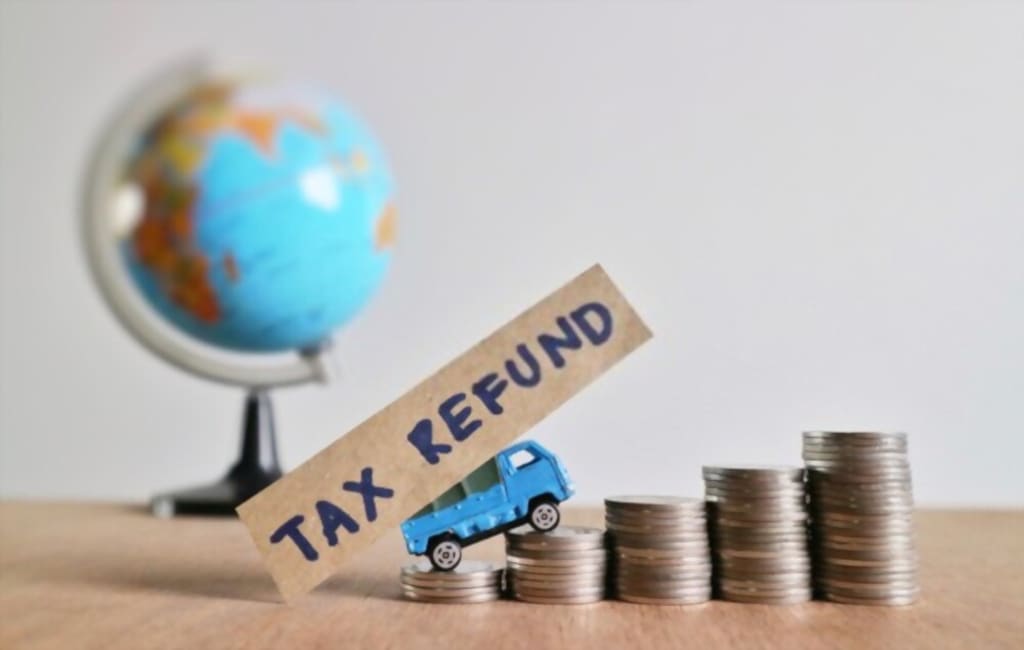
It's possible to pay more tax to HMRC than you owe, even if you have the most precise accounting practises in place. Overpayment of taxes can be caused by a variety of circumstances, ranging from tax code problems to unexpected changes in profits. Here's how to have your overpaid taxes refunded, whatever the cause.
PAYE tax was overpaid.
HMRC will automatically reconcile any disparities if you pay taxes through PAYE at the end of the tax year. This calculates the difference between due and paid taxes. If these two values disagree, HMRC will give you a P800 tax calculation or a PA302 simplified assessment. Before claiming your overpayment tax refund, double-check these documents for inaccuracies.
Self-assessment resulted in an overpayment of income tax.
You presumably file a self-assessment return online if you're self-employed or own a small business. Overpayments are prevalent among self-assessment taxpayers, and they occur when your income is lower in one tax year than the preceding. As a result, your account payments will exceed your actual liability.
It's simple to claim overpaid tax through self-assessment because the online return includes a part that asks for bank account information. You can choose to be paid overpayment income tax via check if that is your preference.
Overpayments can also be used to pay off other debts, such as VAT payments or overpayment credits.
Overdue company taxes accrue interest.
Depending on the conditions, larger corporations may be able to reclaim overpaid taxes with interest. Overpayments can be reported on business tax returns in the same way that they can be reported on a self-assessment return for self-employed individuals.
The HMRC interest rate on overpaid corporate tax is 0.5 percent for the 2020/2021 tax year. This applies if your company has paid taxes early or paid more than it owes.
- HMRC pays interest on early payments for the period beginning with the corporate tax payment and ending with the payment deadline.
- Overpayments: Interest is calculated either from the due date of the tax or from the day the tax was paid.
- Interest is calculated either from the first instalment date or from the date that the balance exceeds what is owed if your firm pays tax in quarterly instalments.
It's vital to remember that these interest payments are taxable and should be reported on your next company tax return as income.
You have many alternatives for claiming overpaid corporate tax, just as you do with PAYE and self-assessments.
- For direct payment into your firm bank account, include your business account number and sort code on your tax return.
- Use your overpayments to reduce your next corporate tax bill or penalties for late filing.
- Overpayments can be used to offset additional taxes payable by the business, such as PAYE or VAT.
Tax refunds that have been overpaid have been delayed for a variety of reasons.
Generally, submitting your tax return online is the quickest way to collect an overpayment tax refund. Repayments are usually deposited immediately into your bank account within a few days. However, HMRC may need to double-check figures before delivering your refund. If you haven't heard anything about your refund in several weeks, you should contact HMRC for more information.
Due to the size of a return or the fact that you work in a specific industry, further security checks may be conducted. In some circumstances, HMRC may send a letter requesting additional information, necessitating contact with a tax professional.
Tax refunds that have been overpaid are subject to time limits.
If you've overpaid taxes as a result of errors on your tax return, you'll need to revise your return before you can get the money back. Corrections to tax returns are usually due 12 months after the tax year's self-filing deadline (January 31). If you discover the mistake after this deadline, you may still be eligible for a refund through overpayment relief.
You must write to HMRC directly to obtain overpayment relief and provide the following information:
- Details about yourself or your company (Name, address, UTR or NIN)
- The fiscal year
- Statement requesting reimbursement for overpayments
- What happened to cause the overpayment?
- Proof of tax payment
- Details of your bank account or a request for a check
- Date and signature
Keep copies of correspondence with HMRC for your own financial records, just as you would with any tax situation.
About the Creator
Amelia
Are you ready to skyrocket your online presence? Look no further! I'm Amelia, your go-to Digital Marketing Expert, here to take your brand to newheights
My Skills
SEO Optimization
Social Media Management
PPC Advertising
Analytics & Reporting






Comments
There are no comments for this story
Be the first to respond and start the conversation.